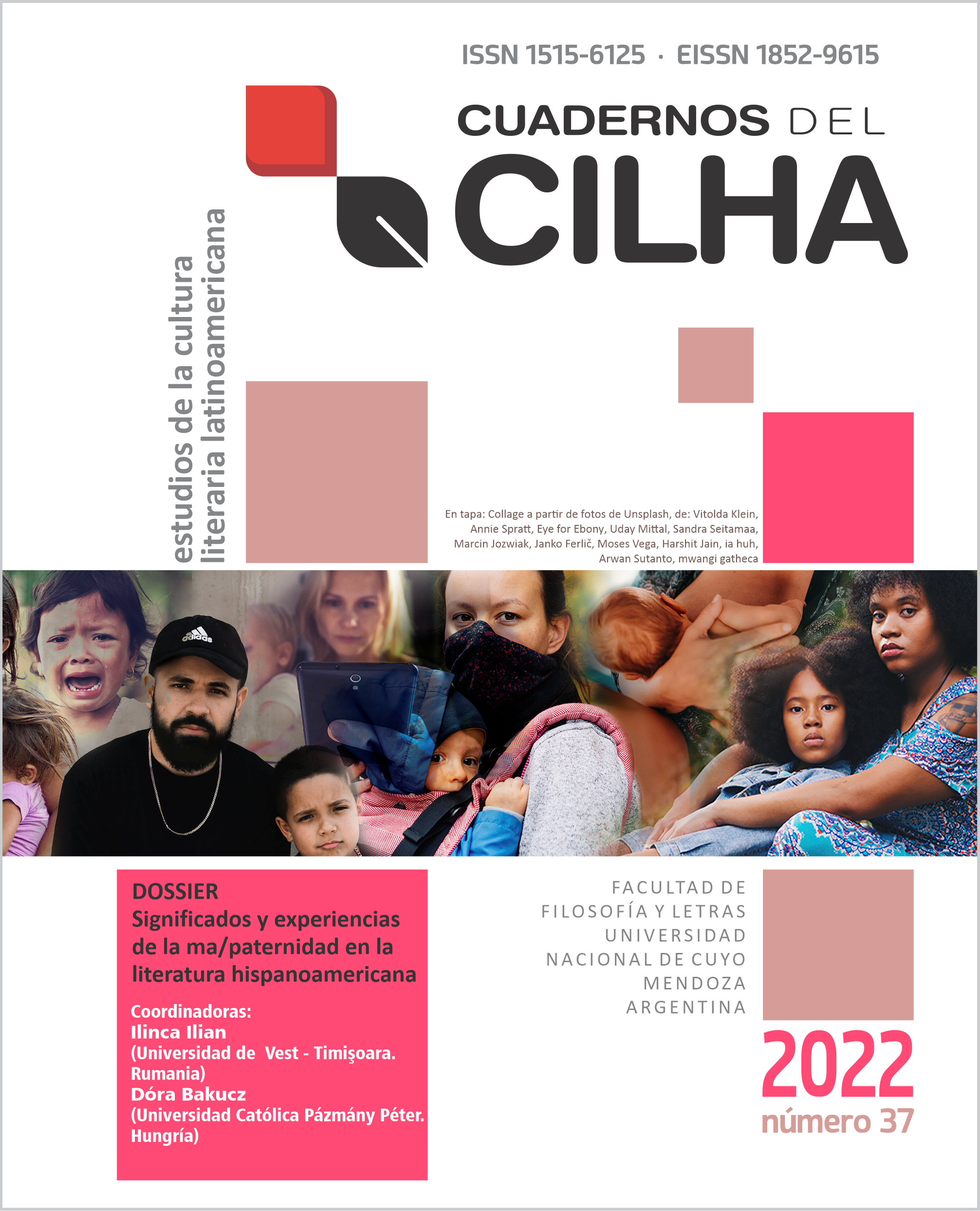Maternity/paternity and the unlived past: divided and monstrous bodies in contemporary Argentine literature
DOI:
https://doi.org/10.48162/rev.34.055Keywords:
Maternity/Paternity, Bodies, Argentine literature, New Argentine Narrative, Argentine post-dictatorshipAbstract
Abstract: The article aims to analyze how in the experience of motherhood/fatherhood the human body can become a stamp of certain social, political, ideological, emotional changes that characterize our times on the one hand, and, on the other hand, what generations of the Argentine post-dictatorship inherited from a past they had not personally experienced. The purpose of this work is to study through four contemporary texts by authors of the new Argentine narrative how different types and forms of physical experiences (distance, proximity, transformations of the body) related to the fact of becoming a mother or father activate a series of associations that generate existential tension and anguish. The texts analyzed are two short stories from the anthology El nuevo cuento argentino, una antología (The New Argentine Short Story, An Antology), selected and prefaced by Elsa Drucaroff, and published in 2017 by the University Publishing House of the Faculty of Philosophy and Letters of the UBA: “Lo que ha comenzado” (What has begun) by Alejandra Laurencich (1963–) and “Los viejitos” (The old couple) by Patricia Suárez (1969–), as well as the (short) novels: Distancia de rescate (Fever Dream) by Samanta Schweblin (1978–) and La uruguaya (The Uruguayan Woman) by Pedro Mairal (1970–).
References
Berroa, R. y Pérez López, M. Á. (Eds.). (2020). El cuerpo hendido. Poéticas de la m/p/aternidad. Universidad Autónoma de Nuevo León.
Butler, J. (2017). Cossos que encara importen / Bodies that still matter. Centre de Cultura Contemporània de Barcelona.
Castaño Guzmán, Á. (23 de mayo de 2016). Las desgracias que nombro pasan alrededor de los cultivos con glifosato. Semana.
Drucaroff, E. (Ed.). (2017). El nuevo cuento argentino. Una antología. Editorial Universitaria de la Facultad de Filosofía y Letras UBA.
Drucaroff, E. (2011). Los prisioneros de la torre. Política, relatos y jóvenes en la posdictadura. Planeta.
Kristeva, J. (1987). Historias de amor (Trad. A. Ramos Martín). Siglo XXI Editores.
Mairal, P. (2017). La uruguaya. Libros del Asteroide.
Maradei, G. (2016). Cuerpos que insisten: familia, matrimonio y maternidad en la literatura argentina de la última década. Chasqui, Revista de literatura latinoamericana, 45(1), 246-263.
Meruane, L. (2018). Contra los hijos. Literatura Random House.
Millet, E. (2015). Hiperpaternidad. Plataforma Editorial.
Nancy, J. L. (2003). Corpus (Trad. P. Bulnes). Arena Libros.
Rich, A. (2019). Nacemos de mujer. La maternidad como experiencia e institución (Trad. A. Becciu). Traficantes de sueños.
Sarlo, B. (2018). La intimidad pública. Seix Barral Argentina.
Schweblin, S. (2014). Distancia de rescate. Literatura Random House.
Vilches Norat, V. (2020). Madre metáfora. En R. Berroa y M. Á. Pérez López (Eds.), El cuerpo hendido. Poéticas de la m/p/aternidad (págs. 422-449). Universidad Autónoma de Nuevo León.













































